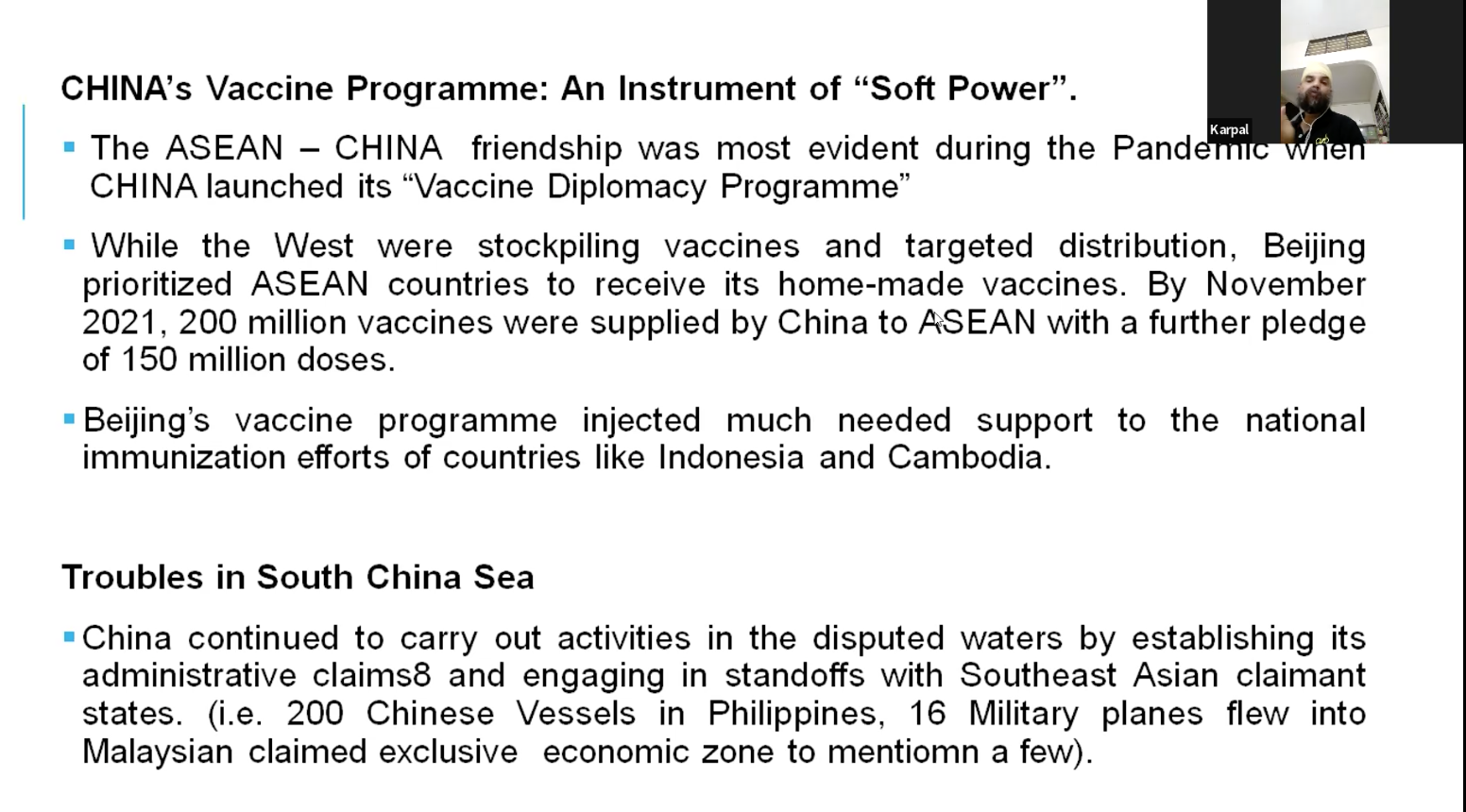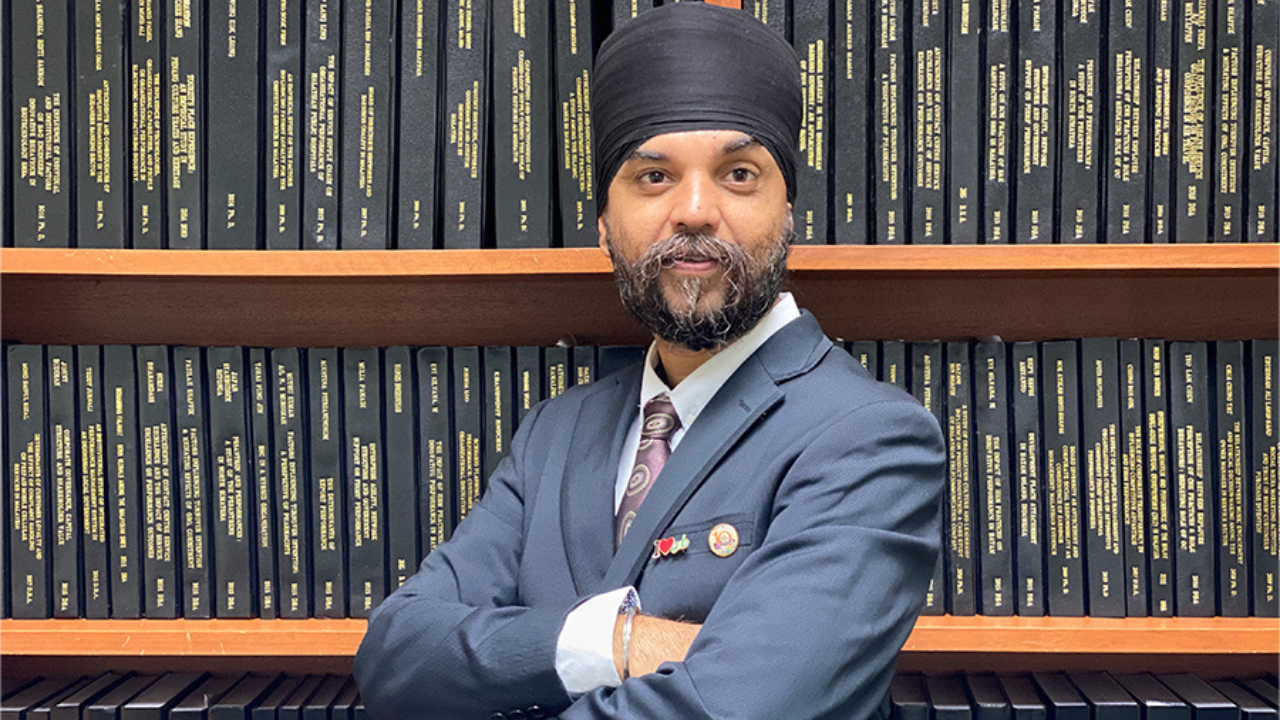In our modern world, the old ways to attain the title of a world leader, such as violence and war, are becoming irrelevant. Therefore, soft power as a strategy to place a country in a strategic position in the eyes of the world is critical. The SBM ITB summer course program, the International Virtual Course 2022, which raised “Soft Power” as its central theme, organized its fourth session on Thursday (21/7/2022). The topic is “Exporting Cultural and Creative Products: Soft Power to Win the World,” with a senior lecturer from Universiti Sains Malaysia, Dr. Karpal Singh as the speaker.
 Dr. Karpal discussed strategies used by China in taking advantage of soft power in the international arena. According to Karpal, two main elements are key to China’s soft power in Greater Asia, namely the vaccine program and BRI.
Dr. Karpal discussed strategies used by China in taking advantage of soft power in the international arena. According to Karpal, two main elements are key to China’s soft power in Greater Asia, namely the vaccine program and BRI.
“When western countries hoard vaccines to reap huge profits and use it as a strategy to maintain their position in the world, China, with its Sinovac, was different. They were handing it out for free to developing countries, including Indonesia, their first and biggest recipient for Sinovac,” said Karpal.
Its Digital Silk Road (DSR) program, a technological dimension of China’s Belt and Road Initiatives (BRI), also focuses on building digital software infrastructure, such as advancing wireless networks, investing in smart city development, e-commerce platforms, artificial intelligence (AI), internet-of-things (IoT), as well as other digital economy applications, provides opportunities for ASEAN countries to take advantage of their rapidly growing digital economy.
“That’s how they use soft power. China creates a good perception in the eyes of the public through BRI, sponsoring infrastructure development in developing countries, and fostering economic partnerships. These programs increase connectivity back to China, thereby leading to greater economic growth and strengthening the country’s international economy,” Karpal concluded.




